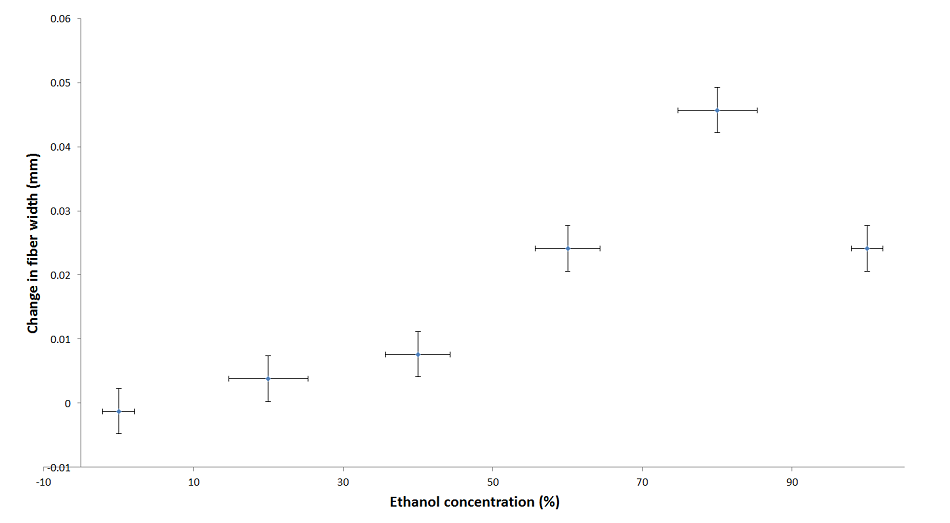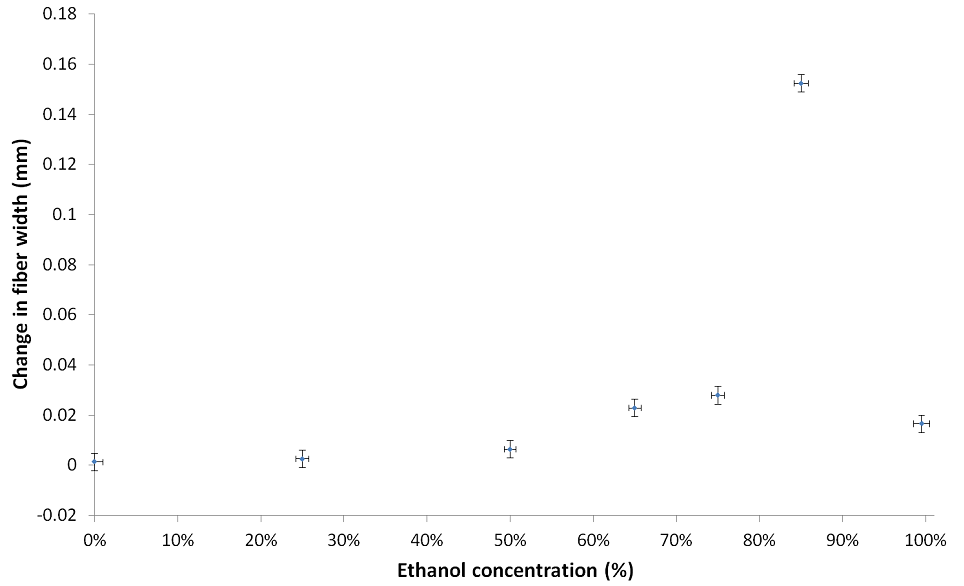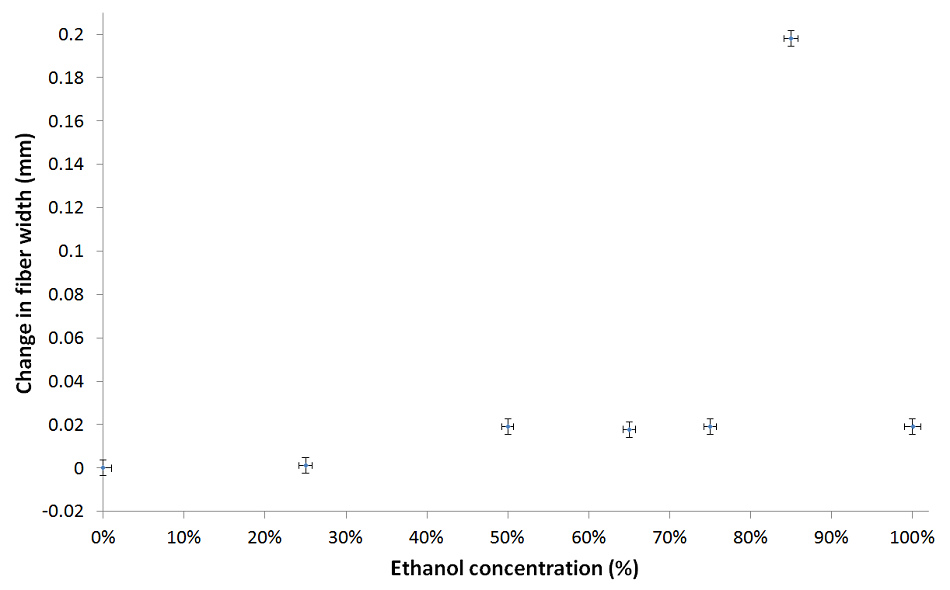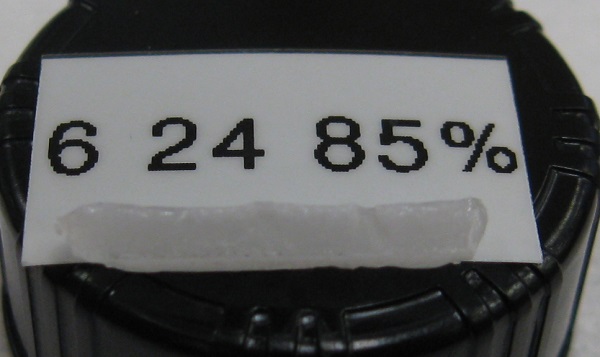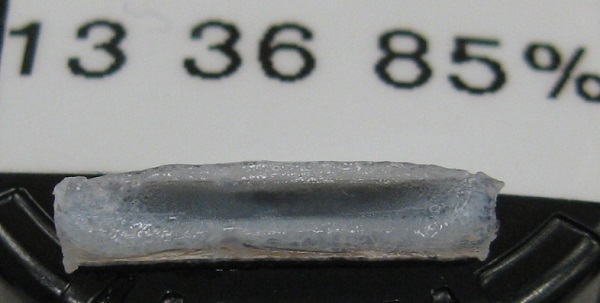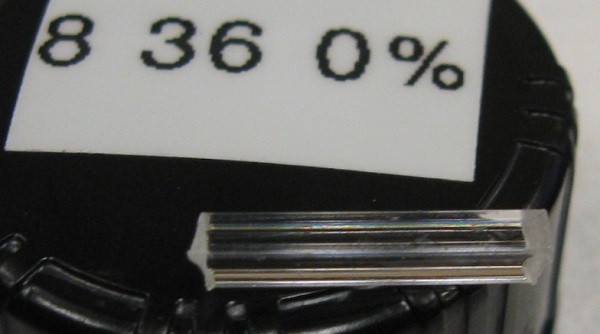Difference between revisions of "Non-heated Alcohol Tests"
Jump to navigation
Jump to search
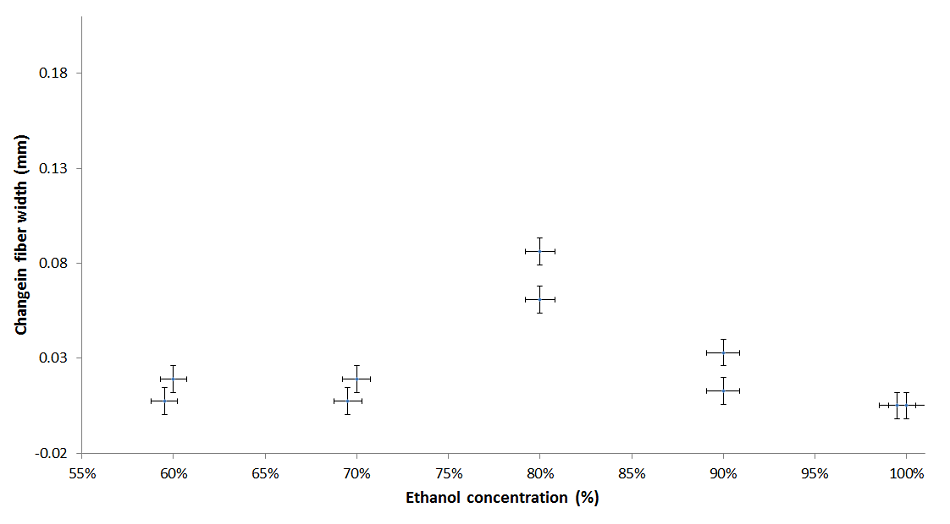
m |
|||
| Line 9: | Line 9: | ||
[[File:Alcohol_Test_8_32hr.png|frame|center|alt=Alcohol Test 8, 32 hours|An extra 8 hours sitting in room temperature alcohol didn't have any greater change on the fibers.]] | [[File:Alcohol_Test_8_32hr.png|frame|center|alt=Alcohol Test 8, 32 hours|An extra 8 hours sitting in room temperature alcohol didn't have any greater change on the fibers.]] | ||
| − | |||
| − | |||
| − | |||
| − | |||
| − | + | [[File:Alcohol_Test_8_Fiber6.jpg|frame|center||alt=Fiber 6 of the 24 hour portion of Alcohol Test 8 (non-heated) 85%|This is the fiber from the 24 hour test. It was in 85% ethanol and it is clear that there is severe damage to the cladding.]] | |
| + | |||
| + | [[File:Alcohol_Test_8_Fiber13.jpg|frame|center||alt=Fiber 13 of the 24 hour portion of Alcohol Test 8 (non-heated) 85%|This is the fiber from the 32 hour test. Again, severe damage to the cladding occurred.]] | ||
| + | |||
| + | |||
| + | [[File:Alcohol_Test_8_Fiber8.jpg|frame|center|alt=Fiber 8 of the 32 hour portion of Alcohol Test 8 (non-heated)|This is the fiber from the 32 hour test which sat in plain tap water. Minimal damage occurred.]] | ||
Revision as of 18:30, 10 July 2013
The procedure for the non-heated alcohol tests can be found here.

After it was clear that something strange was happening when light guides were placed in ethanol concentrations between 60-80%, we tested 10 more light guides. There were two fibers in each concentration of 60%, 70%, 80%, 90% and 100%. This test shows swelling around the 80% concentration mark. The concentration which causes damage to the fibers is higher when the solutions are not heated.
